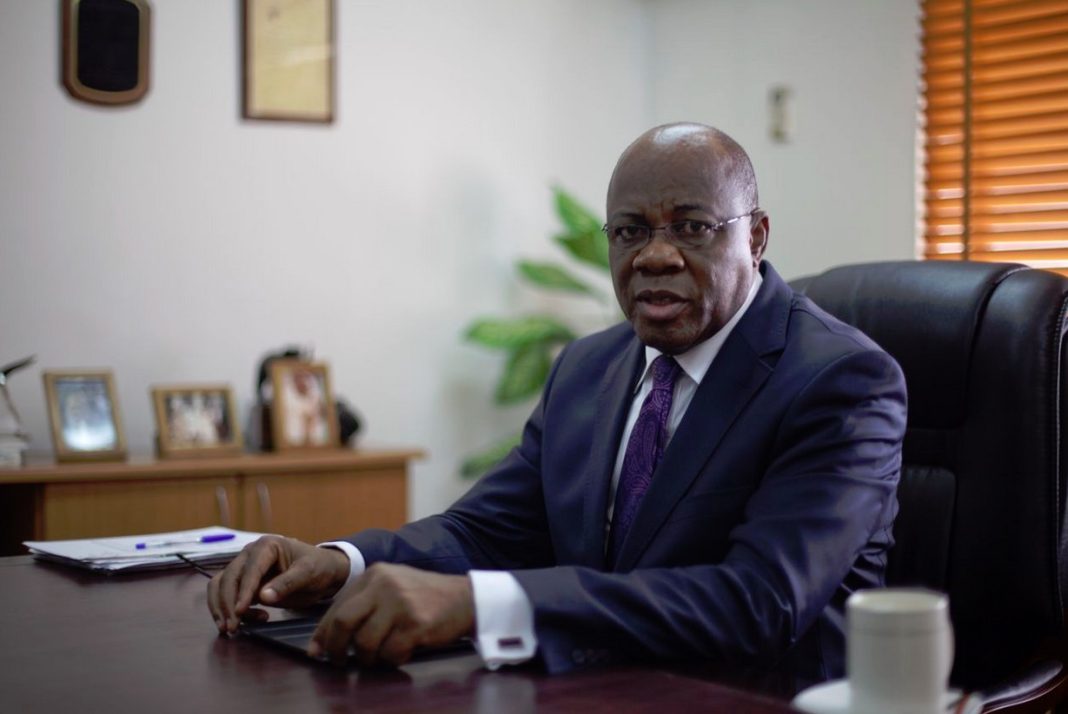ABUJA, Nigeria — Olisa Agbakoba, a Senior Advocate of Nigeria (SAN) and former president of the Nigerian Bar Association, has written to the National Assembly, raising significant concerns about the constitutionality of the Economic and Financial Crimes Commission, EFCC, and its role in law enforcement.
In letters dated October 14, 2024, addressed to Deputy Senate President Barau Jibrin and Deputy Speaker of the House of Representatives Benjamin Kalu, Agbakoba asserted that the EFCC was “unconstitutionally established” and urged the legislature to address the legal framework underpinning the nation’s anti-corruption efforts.
The letters come amid ongoing legal challenges by 16 Nigerian states seeking to delegitimize the EFCC, questioning its authority to audit state government accounts. The Supreme Court is scheduled to deliver a ruling on the matter on October 22.
Agbakoba’s Constitutional Concerns
In the letters, Agbakoba expressed concerns that the powers granted to the EFCC exceed the National Assembly’s constitutional authority.
“I very strongly believe the EFCC is unconstitutionally established. The powers under which it was established go beyond the powers of the National Assembly. The EFCC is an unlawful organisation,” he stated.
He commended the recent legal challenges mounted by the states, calling it a crucial step toward resolving the long-standing questions surrounding the legality of the EFCC.
“This will put to rest the question relating to the validity of the EFCC,” he added.
A Call for Reform
The letters emphasised the need for constitutional reforms related to law enforcement agencies, particularly with regard to their anti-corruption efforts.
Agbakoba cited the lack of coordination among Nigeria’s law enforcement agencies, which, he argued, has hindered the government’s efforts to tackle corruption effectively.
“From my observation, there is no harmony amongst law enforcement agencies on corruption. They all appear to be working at cross purposes,” Agbakoba noted.
He referenced several Supreme Court rulings that have questioned the EFCC’s conduct and legitimacy, urging the National Assembly to take legislative action.
Public Hearing Requested
In his correspondence, Agbakoba requested that the Senate convene a public hearing to address these constitutional issues.
This would provide a platform for stakeholders to engage in discussions about reforms needed to strengthen Nigeria’s legal and institutional frameworks for law enforcement and anti-corruption.
“Whilst we await the decision of the Supreme Court as the final court on the matter, I respectfully request that the Senate convene a public hearing to consider these constitutional issues,” Agbakoba wrote.
He expressed confidence in the leadership of the Senate Constitution Review Committee, chaired by Jibrin, and stressed the importance of legislative attention in ensuring that Nigeria’s anti-corruption agencies operate within a robust and lawful constitutional framework.
Reactions to the EFCC’s Legitimacy
The timing of Agbakoba’s letter coincides with increasing criticism of the EFCC’s operations from multiple quarters.
The 16 states challenging the agency’s authority are seeking a ruling that would prevent the EFCC from auditing their accounts, a move that could significantly limit the scope of the anti-corruption body’s activities.
In response to these developments, Agbakoba expressed optimism that the Supreme Court ruling would help clarify the constitutional standing of the EFCC.
Meanwhile, he urged lawmakers to consider the broader implications for Nigeria’s legal infrastructure and its efforts to combat corruption.
Next Steps
The Supreme Court’s ruling on the constitutionality of the EFCC is expected to provide some clarity on the legal status of the anti-corruption body.
However, Agbakoba’s call for a public hearing signals the potential for broader legislative reforms, particularly if the court’s decision favours the states challenging the EFCC.
As the debate continues, Agbakoba’s letters have sparked renewed discussion on the future of Nigeria’s anti-corruption efforts, with many stakeholders now calling for a more coordinated and constitutionally sound approach to law enforcement in the country.
The National Assembly is yet to respond formally to Agbakoba’s letters, but with the Supreme Court set to rule on the matter, the future of the EFCC—and by extension, Nigeria’s broader anti-corruption framework—remains uncertain.
Agbakoba’s intervention underscores the legal complexities surrounding the agency’s role and the broader need for constitutional clarity in Nigeria’s fight against corruption.







